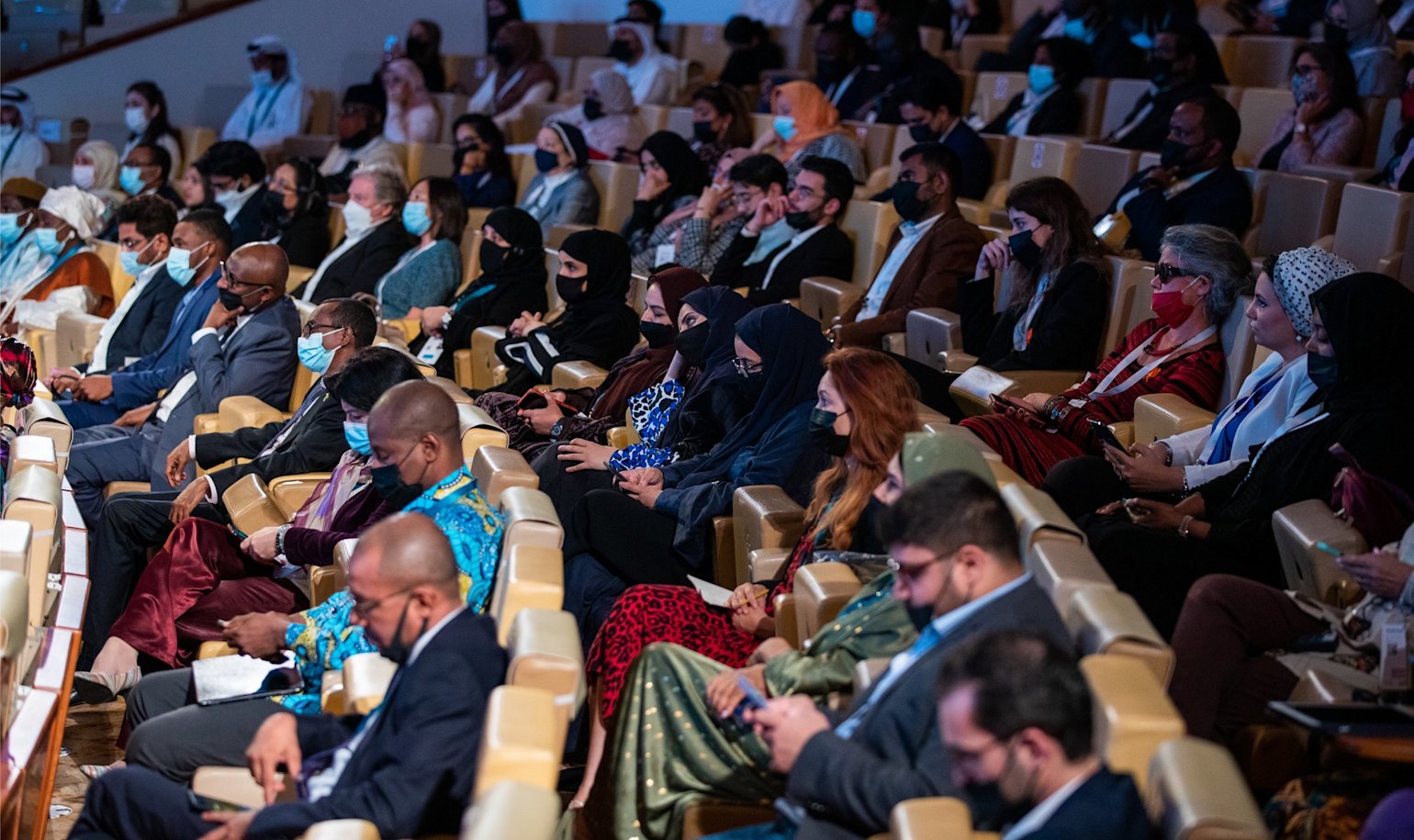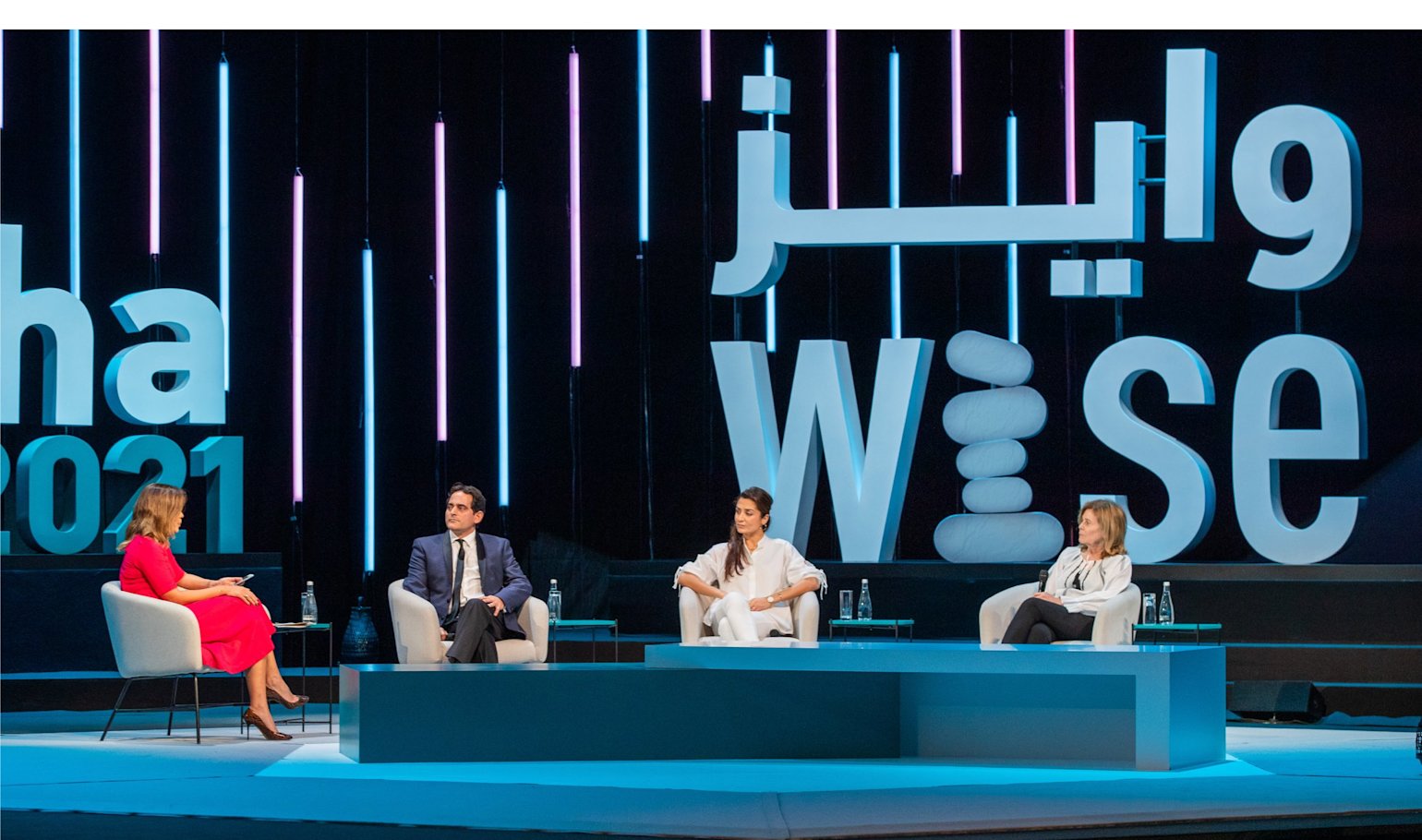Coronavirus (COVID-19) Updates
For the latest COVID-19 information and updates from Qatar Foundation, please visit our Statements page

Sir Anthony Seldon speaking at the closing session of the 2021 WISE Summit
Biennial Summit of QF’s global education initiative ends with calls for education systems to provide holistic learning experiences and teach climate literacy
It will take “more than a pandemic” to transform education, the 2021 WISE Summit has been told as the global education conference closed with calls to focus on protecting children and young people’s mental health and weave climate literacy into every school subject.
The final session of the Summit, organized by QF’s global education initiative WISE, saw Sir Anthony Seldon, former Vice Chancellor of the University of Buckingham in the UK, explain to delegates why education systems that are “only interested in exam passes” need to instead recognize that looking after children’s wellbeing means better academic results, as well as setting them on a path of happiness.

The Summit has been attended in-person and virtually by more than 10,000 people.
“Mental illness is rising and rising in our schools and in our countries, wherever we are, but it doesn’t have to rise,” he told the session, titled Fixing School, Fixing the Planet. “If we can help young people learn habits of kindness to themselves as well as to others, habits of agency, the habit of looking after themselves when they are young, they will have a better chance of living happier lives as adults.
“Technology can either be a great good or a great bad. Young people spend four, five, six hours a day on technology, and it can take them away from each other and do enormous damage to their self-esteem. But at its best, technology can give one-to-one teaching to every child, even in the poorest countries, and stimulate and enchant them. And it can create so much more time in the school day for arts, music, sport, volunteering, character building, and social activity.”
We need enlightened leadership to recognize that education is about much more than passing exams and intellectual, academic learning
According to Sir Anthony, despite widespread views that the differences to the way children learn that were enforced by COVID-19 could herald a new era for education, there is “no guarantee the pandemic will create the changes we desperately need”.

The importance of climate literacy was emphasized by speakers during the closing session.
“We need enlightened leadership to recognize that education is about much more than passing exams and intellectual, academic learning,” he said. “It is about active learning, about learning to be a better human being, about how we can play our parts in society, and about how we can live with ourselves so we don’t see the rise of mental illness among young people that is unnecessary and caused by an excessive focus on academic learning as the only validator of a school and a child.”
Our job is not just to share the science of climate change, but to unleash innovators and inventors
In the Summit’s final panel session, Kathleen Rogers, President of the Earth Day Network, emphasized the need for “mandatory assessed climate literacy in schools – not just in STEM, but in every component and course a child would take”.
“Unmuting students is part of fighting climate change, but we believe they can also be unleashed,” she said. “Our job is not just to share the science of climate change, but to unleash innovators and inventors.
“Many students are now united in the fight against climate change, but are also focused on social injustice and other issues related to building a meaningful, more united global culture. Climate change presents an opportunity to build a strong global social network – not just built on fear of climate change, but also its opportunity, and uniting all resources in all schools to bring together a global community that ensures the role of education continues to be focused on all subjects.
WISE is a movement, a community, animated by the idea that, through education, you can improve the human condition one child, one teacher, one school at a time
“We increasingly see a focus on technology as a way of building and innovating our way out of climate change, but arts, sport, psychology are all part of the global solution, and it starts with education. We need musicians, psychologists, engineers, doctors, and everyone to be engaged, not just for the sake of addressing climate change, but to build the future.”
The final word of the Summit came from Stavros N. Yiannouka, CEO of WISE, who reiterated the QF initiative’s commitment to growing its education technology accelerator and EdTech test-bed initiative, as well as to ensuring Arabic voices continue to be heard at future editions of the WISE Summit.

Stavros N. Yiannouka, CEO of WISE, gives the Summit’s closing address.
“WISE is a movement, a community, animated by the idea that, through education, you can improve the human condition one child, one teacher, one school at a time,” he told the audience.
“What remains is for all of us to ask ourselves: are we ready to do what it takes to change the world for the better?”

